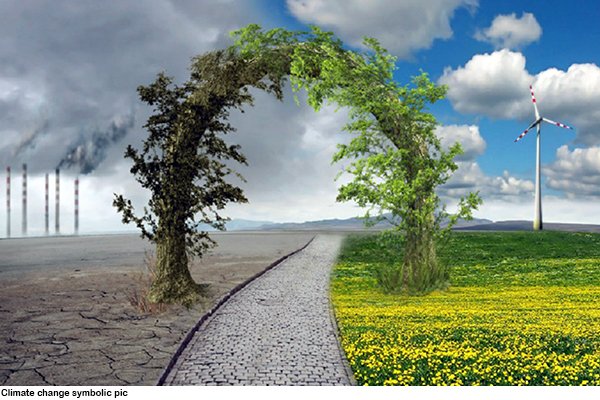Central banks of G20 countries have a severe lack of high-impact climate-related policies, says this important report

The responsible people of the top financial and monetary units of the world’s largest economies, who have given long speeches on the issue of climate change, are not following their own words. This has been revealed in the report published today by research and campaigner group ‘Positive Money’.
The ‘Green Central Banking Scorecard’ of ‘Positive Money’ in partnership with 24 leading research institutes and NGOs of the world, based on research and advocacy, monetary policy, financial policy and other paths presenting precedent by central banks of G20 countries. Comparative progress has been assessed. It has also been revealed that the policy makers could have taken other steps to deal with the emergency situation related to the environment.
The results of this study show that while 14 out of 20 central banks have achieved full marks in terms of research and advocacy efforts, they are miles behind in terms of ground effort. The overall scorecard indicates their pathetic position in terms of implementing monetary and financial policies in line with the pollution-free economy.
China has topped this year’s scorecard with 50 out of 130, but it also appears in the ‘C’ category on the scorecard. This reveals the fact that while those responsible for China’s financial and monetary sector have taken steps towards increasing lending for pollution-free activities, the policymakers of the top-ranking countries have been given climate protection by their respective governments. For achieving the goals set under the expressed resolutions, a long journey has to be taken.
This report reveals the lack of high-impact policies that can significantly reduce financial support to fossil fuel-related projects in the G20 countries. In cases where central banks have also added the aspect of climate protection to their policies, activities such as fossil fuels and ecologically damaging activities, rather than taking significant steps to reduce financial support, will be subject to financial disclosures, pressure tests and green Incentives have been given to financing the assets.
The authors of the report called upon policymakers to prepare financial regulations to punish high-carbon emissions projects by eliminating unsustainable activities from the assets they purchase and accepting them as a parallel loss of financing. Immediately remove policy-related loopholes through measures that require higher capital to better expose the risks arising from investment in fossil fuel projects.
In view of the necessary preconditions for central banks to maintain prices, support government policy and achieve the goals of financial stability, this report also urges that the Kovid-19 epidemic has further strengthened this need. It has emerged from this that central banks will have to play a more hassle-free and solution-oriented role to promote sustainability.
The positive money report comes after the ‘Banking on Climate Change’ report released last week by Rainforest Action Network, Banktrack and other NGOs. According to the revelations reported in these organizations, the world’s 60 largest private banks have released $ 3.8 trillion for fossil fuel-based projects since the Paris Agreement in 2015. In the year 2020, fossil fuel expansion projects have increased by 10 percent.
The report comes at a time when the Finance Ministers and central bankers of the G20 countries are going to have a meeting on 7-8 April to discuss a new action plan to deal with various global challenges including climate and environment related risks.
The economist at Positive Money and the lead author of this report, David Barmes, said, “While it is a positive thing that central bankers are talking about giving more prominence to climate in their speeches and research, it is a matter of regret.”

